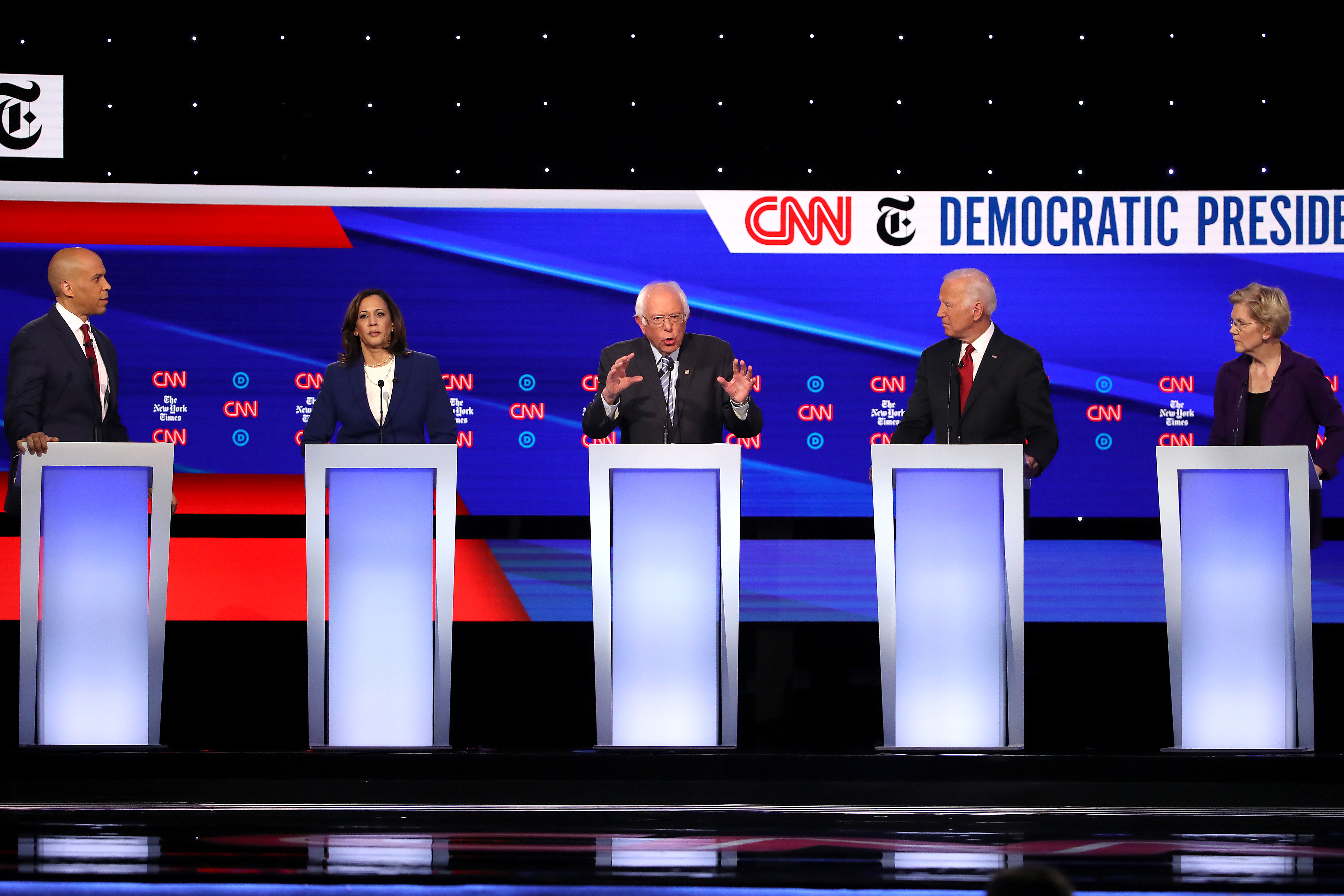Corporations Are Limiting Public Access to Presidential Primary Debates

Credit to Author: Karl Bode| Date: Thu, 17 Oct 2019 12:44:25 +0000
For an event that informs millions of Americans on the positions of aspiring presidential candidates, the degree to which the entire primary debate process is dictated by a handful of corporations who’ve turned the democratic process into a profit center is disconcerting. This control covers everything from who gets to appear, to which broadcasters and services get to carry the event live.
Admittedly, and as last night’s fourth Democratic primary debate showcased, viewer access to the debates has certainly improved since the tube TV era, when broadcast TV was your only option. The debate, hosted by both the New York Times and CNN, was available not only on CNN’s channels and websites, but via both the New York Times and CNN apps. The pair also allowed Hulu to stream the event.
But while access to the debates has improved in the streaming era, there are still barriers to entry. Driven away by high costs and abysmal customer service, a growing number of Americans have hung up on traditional cable TV service. On the streaming side, FCC data indicates that 34 million Americans lack access to broadband, a number that’s likely significantly higher thanks to terrible US broadband availability data.
For a Democratic party that talks a lot about inclusion and access to essential services, the entire debate structure remains tightly controlled by just a few major media and broadcast empires. So far, the DNC has worked behind closed doors with ABC, Westwood One, The New York Times, and CNN to determine who appears and how the public can access the events.
Instead of being made uniformly available to every PBS station from coast to coast and managed via a transparent process that prioritizes the public interest, private corporations dictate the width and breadth of debate availability with a focus on advertising revenue.
Victor Pickard, an American media studies scholar at the University of Pennsylvania, told Motherboard that the problem, as usual, is the United States’ relentless obsession with prioritizing profits over public welfare.
"If our society were truly committed to a democratic project, we would ensure that these debates are universally accessible across all major media so that all members of the polity could engage with them,” he said. “Instead, we allow economic and technological barriers to exclude people.”
For presidential debates, the process is managed by the Citizens’ Presidential Debate Commission, a nonprofit private corporation created in 1988 that has little to do with actual citizens. The commission effectively exists as an extension of the Republican and Democratic parties, operating with little to no public oversight or input. Still, it offers at least the illusion of transparency and accountability.
Primaries, on the other hand, don’t even try—they’re managed by both parties and major media conglomerates with a vested interest in maximizing ad revenues.
Whether primary or presidential debates, there’s now very little public input into who is allowed to appear at debates, what questions will be asked, or who can transmit the debates to the public, creating an insular system that can easily ignore the ebb and flow of public opinion and the public interest.
“These are entirely private events, unregulated by any agency,” Georgetown Law lecturer Andrew Schwartzman told Motherboard. “The networks want exclusivity, and they own the programming, so they can restrict or allow as they wish,” he said, adding that the only option is for voters to press both parties to demand “broader distribution as a condition for cooperation.”
Until that happens, an essential tool for educating voters remains firewalled behind the interests of both major parties and a handful of major media giants.
“We allow these crucial conversations to be curated by commercial media firms whose sole concern is profit, and who would prefer to treat these debates as entertaining game shows that do little to challenge the status quo or to enrich public discourse,” Pickard said.
This article originally appeared on VICE US.